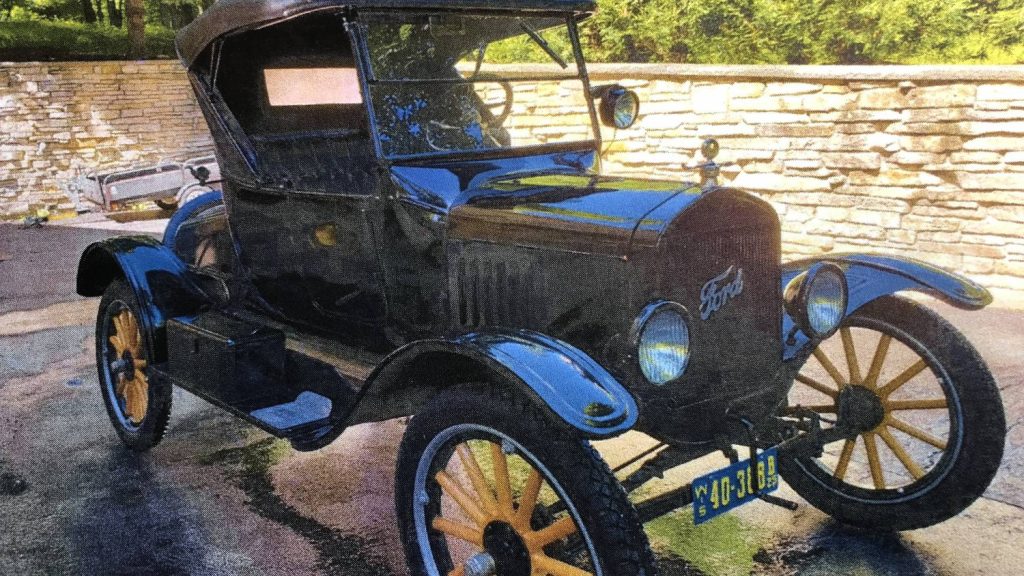Cars have changed the world we live in, but last century’s automobile boom had consequences that designers and engineers never anticipated. Let’s not repeat the mistakes of the past, writes Stephen Holmes
I am a self-confessed lover of cars and have always been one. From well before an age where I could actually reach the pedals, I was already enamoured by how cars looked, the speed at which they travelled and the sounds they made.
Cars are deeply ingrained in my memories of growing up, such as sitting on my grandad’s lap and gripping the steering wheel while he worked the pedals; changing gear on command for my dad from the passenger seat when he dipped the clutch (cheaper than buying an automatic, I suppose); and having to freewheel my first car for two miles downhill with my friends in the back after breaking down – like a VW-badged bobsled, willing it to climb any rises in the road, so that nobody would have to get out and push.
Despite my deep-rooted positivity towards the automobile, in recent times, I’ve become more aware of its impact as a global product, especially given there are few that have been as impactful and divisive.
Living in a village in the arse-end of nowhere makes a car an everyday necessity. Which is not to say, of course, that users like me aren’t aware of the environmental damage they cause and don’t hope for a better solution.
Everything about a car involves energy and waste. Mining metals (increasingly the rare earth variety), generating polymers and glasses, and that’s before you even fill one up with dead dinosaur juice.
They’re also the vehicle of choice of empires and despots, transporting mobilised land warfare to far-flung corners, helping chase native populations off their lands, and have been a lynchpin of segregation for generations.
On the other hand, cars have helped the expansion of nations and enabled great expeditions to take place. They’re responsible for great moments in our culture, creating household names like Fangio, Schumacher and Hamilton.
They have enabled countless households to experience a better quality of life, putting food on the table and allowing them to travel.
In short, automotive design and engineering has had a deep impact on society, and few places have been as impacted as deeply as America.
Lessons from history
I’ve recently finished reading Another Fine Mess by the author Tim Moore, a book about an Englishman wanting to get an idea of the American psyche after the election of Donald Trump in 2016.
Having zero mechanical experience, he buys a Model T Ford, and with the help of owners clubs across the US, he crosses the nation, breaking down frequently along the way.
On his journey, Moore encounters a wide stretch of places and people, and their histories – all of them impacted by Henry Ford’s vision in one way or another.
Few people, through a single product, have had such an enormous and widespread impact on the world, and while the Model T was only in production from 1908 to 1927, the effects of that car and its creators are so ingrained in American culture that the nation is still living with the consequences today.
Reliance on road infrastructure; the neglect of public transport systems; racial segregation – and that’s before you get to the downturn of American automotive manufacturing and the broken communities it has left behind in the ‘Rust Belt’.
Then there’s the issue around mass manufacturing and how Ford’s production line set-up has impacted everything we consume. If you look at every problem in America today, you can link most of them back to its part in the gargantuan adoption of the Tin Lizzie.
While looking at swathes of new vehicle designs for this issue, I’ve been questioning how much of what they offer to the user is beneficial, and how much of it is there to fix what has gone before.
The feeling of driving an electric car is much the same as the very first car I ever drove. They still need a complex infrastructure, and the only benefit is the potential to run on a fuel that can eventually be sustainably harvested and produces no direct emissions.
Going out and buying a Tesla won’t change the world to anything like the same extent as buying a Model T once did, as much as Musk and Co would have you believe.
As a product, the car is no longer seen as a solution to problems. Instead, other products and solutions are now required to fix the problems caused by cars. We’ve lived with mass-market automotive products for a little over a hundred years, and they have transformed the world we live in, but generations later, we’re left picking up the pieces and trying to put things right.
As a result, it’s probably worth considering, the next time you launch a product and your marketing department rushes to describe it as ‘game changing’, exactly what that change will look like a little further down the road.






